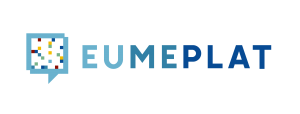News and misinformation consumption: A temporal comparison across European countries
Authors: Anees Baqir, Alessandro Galeazzi, Fabiana Zollo
Publisher: PLoS ONE 19(5): e0302473
Date: 8 May 2024
Abstract
The Internet and social media have transformed the information landscape, democratizing content access and production. While making information easily accessible, these platforms can also act as channels for spreading misinformation, posing crucial societal challenges. To address this, understanding news consumption patterns and unraveling the complexities of the online information environment are essential. Previous studies highlight polarization and misinformation in online discussions, but many focus on specific topics or contexts, often overlooking comprehensive cross-country and cross-topic analyses. However, the dynamics of debates, misinformation prevalence, and the efficacy of countermeasures are intrinsically tied to socio-cultural contexts. This work aims to bridge this gap by exploring information consumption patterns across four European countries over three years. Analyzing the Twitter activity of news outlets in France, Germany, Italy, and the UK, this study seeks to shed light on how topics of European significance resonate across these nations and the role played by misinformation sources. The results spotlight that while reliable sources predominantly shape the information landscape, unreliable content persists across all countries and topics. Though most users favor trustworthy sources, a small percentage predominantly consumes content from questionable sources, with even fewer maintaining a mixed information diet. The cross-country comparison unravels disparities in audience overlap among news sources, the prevalence of misinformation, and the proportion of users relying on questionable sources. Such distinctions surface not only across countries but also within various topics. These insights underscore the pressing need for tailored studies, crucial in designing targeted and effective countermeasures against misinformation and extreme polarization in the digital space.



